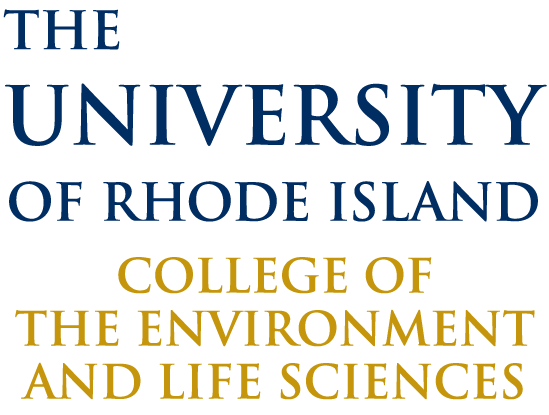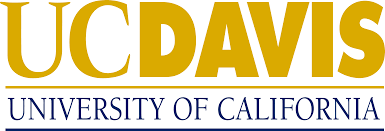Project updates:
12/1/2025
A Tool for Using Organic Soil Amendments
Organic growers face major challenges when trying to balance food safety regulations with National Organic Program requirements. This year, the research team made significant progress on a user-friendly, science-based decision dashboard that will help growers compare risks, treatment methods, and management options for a wide range of organic soil amendments.
Researchers from UC Davis and the University of Georgia developed 3 soil amendment risk pathways (raw manure, compost, and heat-treated poultry pellets) and 2 semi-quantitative risk assessment models for untreated manure and compost. The team also began integrating environmental variables like rainfall, humidity, and temperature into predictive modeling systems. The team will continue to refine the tool to improve usability and customization for diverse cropping systems and regional contexts.
Stakeholder Insights Shaping Training & Outreach
To understand barriers organic growers face around food safety, the team completed a national survey of farm advisors and extension professionals, along with key interviews with auditors, certifiers, and buyers. A total of 1,741 surveys were distributed, with responses received from all states except Wyoming and Nevada.
The findings will inform the design of training programs by highlighting key gaps, operational challenges, and areas where additional or clearer guidance is needed. Data will shape regionally tailored trainings aimed at strengthening shared understanding of organic-specific food safety risks and best practices in 2026 and beyond.
Project Partnerships
The Organic Center helped bring together the Produce Safety Alliance (PSA) and the Organic Agronomy Training Service (OATS) to strengthen training materials at the intersection of organic certification and food safety regulations.
The team identified overlapping needs, missing resources, and key opportunities to align messaging and guidance. These insights are guiding the design of new train-the-trainer modules and regional workshops in the next project year!
5/21/2025
Advancing Risk Assessment Tools for Organic Soil Amendments
The University of Rhode Island (URI) recently closed its advisor survey, with preliminary results aligning with earlier findings that highlight challenges organic producers face in meeting both organic certification and food safety standards. Analysis is ongoing and will guide practical solutions for organic growers.
URI has completed initial listening sessions and interviews, which have been coded for common themes. These insights are informing the development of a soil amendment risk assessment tool and related outreach and training resources. URI postdoctoral researcher Jaime Barrett presented these findings at the American Association of Geographers (AAG) Annual Meeting in Detroit. Her presentation, Uncertain Risk Priorities: The Struggle of Developing a Risk Assessment Tool, explored the difficulties organic and food safety stakeholders face in defining and reconciling differing risk perceptions.
About the Session
The session brought together experts examining complex societal risks shaped by uncertainty, where risk definitions vary across fields and populations. Complex risks—such as disease outbreaks and climate change—feature uncertain cause-effect relationships and divergent views on management strategies.
Risk governance involves anticipating consequences amid these uncertainties, influenced by economic, cultural, and political factors that shape shifting risk priorities. The session addressed how to navigate these challenges to better understand and manage risk.
Barrett’s research focuses on the challenge of defining risk priorities while developing a soil amendment risk assessment tool. Interviews with stakeholders revealed differences in risk perspectives between organic certification and food safety sectors, with ongoing communication gaps. Given that risk assessments are increasingly replacing hazard identification, clearly defining risk will be critical for ensuring food safety and supporting organic production.
This project continues to develop essential tools and resources to help organic producers manage food safety risks.
4/22/2025
Advancing Food Safety Research in Organic Systems
The OREI Soil Amendments & Food Safety team is pleased to share that their research will be featured at the 2025 International Association for Food Protection (IAFP) Annual Meeting, taking place July 27–30 in Cleveland, OH.
Topics include:
- A presentation on Risks associated with the use of untreated manure application in organic production of fresh produce: a semi-quantitative risk assessment, presented by Kefang Nie and collaborators.
- A poster presentation on the Development of a semi-quantitative risk model to reduce food safety barriers in compost application for organic leafy greens production, presented by Maria Luisa Klobongona and team.
- A presentation on Microbial contamination in finished compost from composting facilities across California, presented by Kefang Nie and colleagues.
In addition, Dr. Alda Pires will lead a workshop at the 2025 EcoFarm Conference on June 28th titled Co-management: Assessing Food Safety Risks for Biodiverse Practices. The session will explore the integration of food safety and conservation objectives, focusing on practical strategies for managing perceived and actual risks during audits.
These events highlight the team's commitment to advancing the understanding of food safety challenges and solutions in organic agriculture. We look forward to engaging with fellow researchers, practitioners, and stakeholders at these gatherings.
10/4/2023
URI named lead researcher on $3.5 million USDA organic food safety research grant
University of Rhode Island and The Organic Center to partner on major OREI food safety initiative
The University of Rhode Island and The Organic Center are pleased to announce a new collaboration on an important new organic food safety research project, enabled by a $3.5 million grant recently awarded through the U.S. Department of Agriculture’s Organic Agriculture Research and Extension Initiative (OREI) research program.
Food safety is of paramount importance for every organic grower, but organic produce and specialty crop growers can face unique challenges in trying to meet both National Organic Program standards and multiple food safety requirements. The goal of the 4-year project is to equip organic growers and industry stakeholders – organic technical assistance, trainers, certifiers and food safety auditors and inspectors – with science-based tools and training to enable them to comply simultaneously with organic agriculture rules and food safety best practices and requirements.
The project, “Developing Risk-assessment, Educational, and Communication Tools to Lower Food Safety Barriers for Organic Specialty Crop Growers,” is a result of an earlier grant led by Dr. Patrick Baur, URI assistant professor of fisheries, animal and veterinary sciences, and The Organic Center in which a national needs assessment was conducted of organic farmers. That assessment identified food safety as a top production challenge for organic farmers both in terms of operational and administrative barriers. This project aims to help farmers overcome both of those types of hurdles.
“Americans increasingly want organic fruits and vegetables. They also want food that is safe. We have robust policies designed to deliver safe, organic food through the National Organic Program and the Food Safety Modernization Act. But on the ground, these policy worlds don’t always speak the same language or work together. The burden falls on organic farmers to deal with all the resulting tensions. That’s the reason for this multiregional OREI project,” said Baur, who is part of URI’s Sustainable Agriculture and Food Systems program. “We’re going to develop a new food safety management tool designed specifically for organic soil amendments. And we’re also going to develop a suite of new communication and training tools aimed at the entire fruit and vegetable sector to build a shared language between organic agriculture and the food safety community and help them work better together.”
The Organic Center was awarded almost $635,000, its biggest OREI award ever, to direct the project’s national extension and education efforts. The Center will host 10 regional, in-person workshops with farmers, organic certifiers, and food safety inspectors to help the organic experts understand the biggest food safety rules challenges and to educate the food safety specialists on organic practices, particularly those that could conflict with food safety rules.
“Organic farmers face many production, regulatory and administrative barriers to growing food that protects our land and bodies. Our goal with this work is to remove some of those barriers with tools, knowledge exchange, and collaboration,” said Dr. Amber Sciligo, PhD, Director of Science Programs at The Organic Center. “If we can get farmers, organic certifiers, technical assistants, and food safety professionals all on the same page, then meeting organic and food safety standards simultaneously will become more feasible for organic farmers.”
Also participating in this important project will be the researchers Dr. Alda Pires and Dr. Beatriz Martinez-Lopez of the University of California at Davis and Dr. Abhinav Mishra and Dr. Govindaraj Dev Kumar of the University of Georgia.
OREI awarded 24 research grants this year, totaling $43 million in funding. OREI helps support wide-ranging research projects that specifically address the most critical issues impacting organic growers. The 2018 Farm Bill approved increasing funding for OREI to $50 million per year by 2023, thus establishing permanent funding for the program.
See the original announcement article here.
** This newly funded research was developed from earlier planning grant efforts in 2020 (see previous News and Updates).
8/10/2022
Watch the webinar with the results from the organic farmer survey: Tools Organic Farmers Need to Meet Food Safety Requirements: Learnings from a National Needs Assessment
4/15/2022
Organic Farmer Survey: What tools do you need to meet food safety requirements
The Organic Center has partnered with The University of Rhode Island to identify the best opportunities for developing cost-effective and organic-compliant tools that will help organic farmers with food safety risks and third-party certification. If you operate a certified organic farm growing vegetables, fruit, or nuts, or are considering organic certification for your farm, please fill out our short 10-minute survey on third-party food safety certification. The survey is funded by the USDA and all responses are anonymous. Please contact Dr. Patrick Baur at pbaur@uri.edu for more information.
Take the Survey
Stay Connected
Stay connected with our project focused on creating practical food safety tools and training for organic produce farms. By signing up, you’ll receive updates on research findings, resources, and opportunities to partner or contribute your expertise. Together, we can support organic growers in meeting both food safety standards and organic certification requirements.




